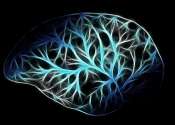Scientists propose that obesity is a neurodevelopmental disorder
Obesity has increased rapidly in recent decades to affect more than 2 billion people, making it one of the largest contributors to poor health worldwide. Despite decades of research on diet and exercise treatments, many people ...
Sep 28, 2022
2
140









